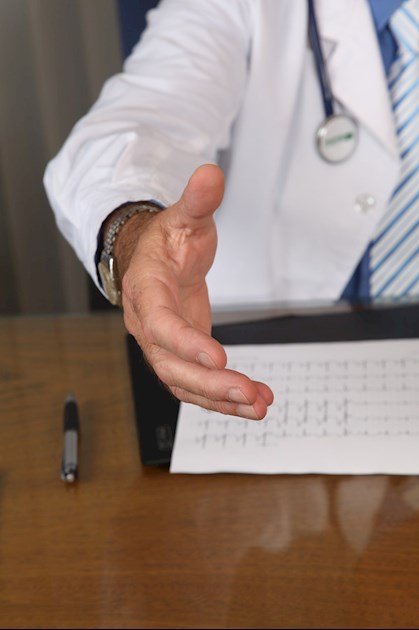I recently had the opportunity to talk to a group of medical professionals about lung cancer survivorship issues, and a major focus of my talk was telling them what I think lung cancer patients want from our medical teams. I think that it is an important message to deliver because my medical team looks like a pretty healthy group of individuals overall, and I often wonder how many doctors and nurses work with seriously ill patients without ever having experienced serious illness themselves. It’s hard to know what you will want until that day comes when you are the person sitting in a chair while your doctor gives you a grim diagnosis.
The first thing that we want is hope, especially on the day that we get the bad news that we have lung cancer. Even the most ill of us need a glimmer of hope. We are individual cases, not statistics, and no one can predict exactly how our disease will progress. We need our doctors and nurses to believe that about us, too. I think this is one place where many of the doctors who are delivering the news may not be fully prepared. I learned I had lung cancer from my family doctor, and he knows little about the disease. He did the best he could, but I left his office feeling terrified and lost.
If we are having a difficult time dealing with fear and anxiety, we want help for these debilitating mental states. Whether it is referral to a counselor or a prescription for Xanax, we deserve understanding and assistance. This is no time to try to tough it out! Some of us may never raise the question, so it would be helpful if our doctors and nurses would ask us from time to time how we are doing emotionally, and whether we could use some help.
We want to learn enough about our diseases to meet our particular needs and no more. Some of us want to dig into the science as deeply as possible, and some of us prefer to take things one treatment at a time, and don’t want to become lung cancer experts. Our medical team needs to meet us where we are and point us towards appropriate and trustworthy resources that match our level of curiosity. They also need to answer our questions, be they as simple as what the comfort drugs given with our chemo will do for us, or as complicated as a discussion of a particular research paper.
We want our doctors’ offices, clinics, support groups, and hospitals to be safe places where we will not have to deal with stigma and shame for having a disease that is often assumed to be the result of personal choices. Whether a lung cancer patient smoked or not, we all deserve treatment to control symptoms and extend our lives. We all deserve compassion and kindness along with our treatments.
I’ve come to believe that what we want most of all is to connect with other lung cancer patients. Look at everyone on this site - that is exactly what we are here for. Our doctors and nurses are vital to our continued survival, but other lung cancer patients and survivors know exactly what we are going through and can be much more helpful with the nitty gritty of how to deal with side effects. Confidentiality rules make it difficult for doctors to introduce us to each other, but it seems like the best place to make connections would be our clinics and treatment centers. Thank goodness so many of us use the Internet to come together, share information, and support each other. Can you imagine how isolated we would be without this wonderful resource?
Is there something that you want from your medical team that I have not mentioned here?
Photo credit: Pixabay picture by valelopardo, CC0 Public Domain
